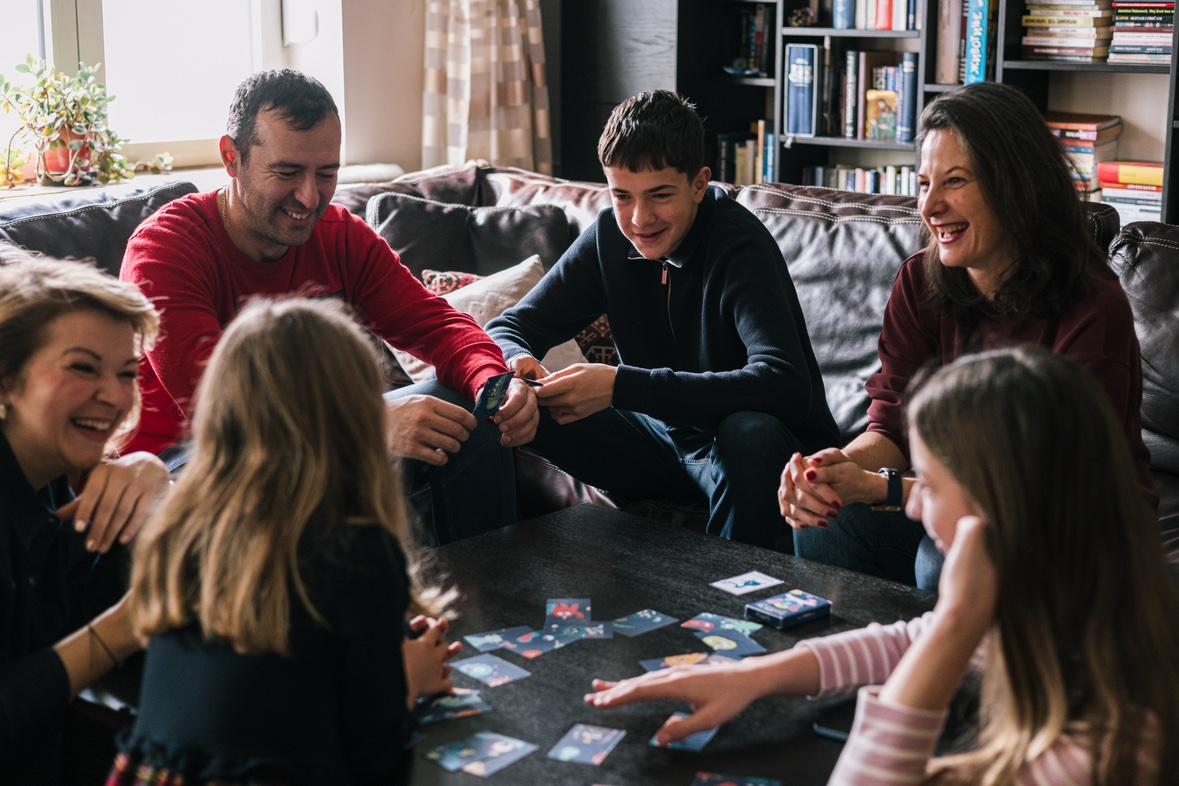Blog

Building Emotional Intelligence at Home: A Family Guide
From a mom of three with 15 years of hands-on experience
- Keywords
- Emotional intelligence in families
- Emotional intelligence parenting
- Emotional intelligence activities for kids
- Positive parenting strategies
- Family emotional wellness
- Conflict resolution for children
- Empathy in family relationships
- Building emotional intelligence at home
As a mother of three, I’ve spent the past 15 years learning, practicing, and refining emotional intelligence (EI) within my own family. It hasn’t always been easy—but it’s been deeply rewarding. Emotional intelligence has helped us navigate tantrums, teenage moods, sibling conflicts, and even the quiet moments of connection that make family life meaningful.
In this post, I want to share what I’ve learned—both from research and real life—about how emotional intelligence can transform your home into a space of empathy, resilience, and trust.

What Is Emotional Intelligence in Families?
Emotional intelligence is the ability to recognize, understand, and manage emotions—your own and those of others. In a family, this means being aware of how emotions affect behaviour, communicating effectively, and showing empathy.
Key Components of Emotional Intelligence:
- Self-Awareness
Recognizing your own emotions and their impact. Example: A parent notices stress and chooses to pause before reacting to a child’s behaviour. - Self-Regulation
Managing emotions constructively, especially during conflict. Example: A teenager practices deep breathing instead of shouting. - Empathy
Understanding and sharing another’s feelings. Example: A sibling comforts another after a tough day. - Social Skills
Communicating clearly and resolving conflicts respectfully. Example: Using “I feel…” statements to express emotions. - Motivation
Supporting emotional growth and personal goals. Example: Celebrating small wins and encouraging perseverance.
How to Build Emotional Intelligence at Home
Here are some strategies I’ve used over the years to build emotional intelligence in children and create a more emotionally aware household:
- Model emotional intelligence: Kids learn by watching. Show calm and respectful emotional responses.
- Create a safe emotional space: Let everyone know it’s okay to feel sad, angry, or scared.
- Use emotion words: Expand your child’s emotional vocabulary with words like “frustrated,” “excited,” or “disappointed.”
- Practice active listening: Give full attention, reflect back what you hear, and validate feelings.
- Hold family check-ins: Regularly talk about how everyone is feeling and what support they need.
- Teach conflict resolution: Guide children through resolving disagreements with empathy and fairness.
Benefits of Emotional Intelligence in Families
Over the years, I’ve seen firsthand how EI leads to:
- Stronger parent-child relationships
- Fewer conflicts and better resolution strategies
- Increased emotional safety and trust
- Improved mental health and resilience
- More respectful and cooperative behavior
These benefits make EI a cornerstone of positive parenting strategies and family emotional wellness.
Fun Family Activities to Boost Emotional Intelligence
Here are some of our favorite family activities for emotional intelligence—tested and loved by my own kids:
🧠 Emotion Charades
Act out emotions like “proud” or “nervous” without words.
Skills: Emotion recognition, empathy, non-verbal communication.
📘 Feelings Journal
Write or draw how you felt during the day and share at dinner.
Skills: Self-awareness, emotional expression, reflection.
🎨 Emotions Wheel
Create a colorful wheel with different emotions and use it for daily check-ins.
Skills: Emotional vocabulary, self-awareness.
🗣️ “I Feel” Statements Game
Practice saying “I feel ___ when ___ because ___” in fun or real scenarios.
Skills: Communication, empathy, emotional expression.
🧩 Problem-Solving Scenarios
Present a conflict (e.g., two kids want the same toy) and brainstorm solutions.
Skills: Conflict resolution, cooperation, perspective-taking.
❤️ Kindness Jar
Write down acts of kindness and read them together weekly.
Skills: Empathy, gratitude, positive reinforcement.
🎭 Storytelling with Emotions
Tell stories where characters feel strong emotions. Guess and discuss the feelings.
Skills: Empathy, emotional insight, creativity.
🧘 Family Mindfulness Moments
Practice breathing exercises or short meditations together.
Skills: Self-regulation, stress management, awareness.
Final Thoughts
Emotional intelligence isn’t something we’re born with—it’s something we build, together. As a mom who’s been on this journey for over a decade, I can say with confidence: it’s worth it. The emotional tools we give our children today will shape how they handle relationships, stress, and success tomorrow.
Start small. Pick one activity tonight and see how your family grows—emotionally and together.
